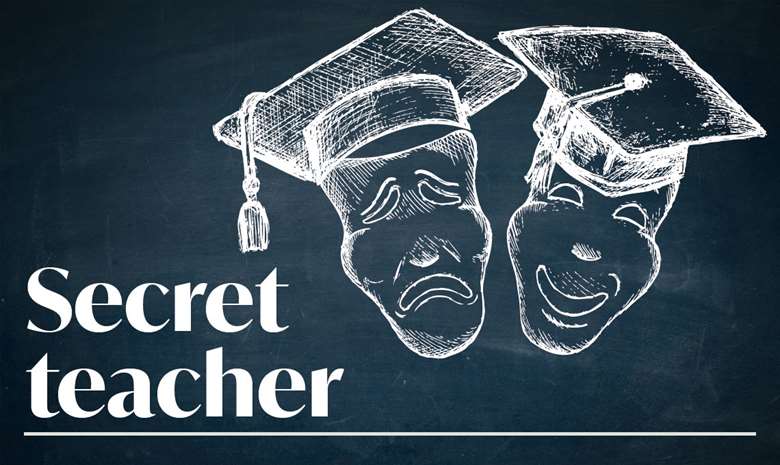Secret Teacher: Issue 89
Sunday, March 1, 2020
Keep them practising that written work...

I've arrived at a new school and a new drama department. Recent contact with the previous head of department has been enthusiastic and supportive. Then, on day one with my new GCSE groups, what do I find? They haven't done any written work at all.
‘Oh, I usually leave all that until after I've got the practical projects out of the way.’ ‘We saw a show, but never got around to going through it in detail or writing up revision notes. We have watched one on DVD though, when he was away.’ ‘We did a mini mock devised project in Year 10, but our teacher didn't bother getting us to do a devising log then, as it was only a mock.’
I am still amazed by the lack of attention some drama teachers give to the written demands of the GCSE. Such a significant amount of the final grade comes down to the written exam that students have to be prepared for this right from the start of the course.
Drama students may have taken the course because they thrive in practical situations, but there is a way to teach them to plan essays simply and effectively. It is so important to hit the ground running at the start of Year 10 with the set text and get them to practise, consistently and in controlled conditions. So often I have arrived at a new school to find the first time GCSE drama students did a full practice paper was in their end of Year 10 exam.
An essay every two weeks please, working their way through the questions they will face in the exam. So, for AQA, start with design questions, then single line analysis, then use of interaction and space and finally playing a character with wider reference to the play. If students understand that these essays are just lists of the best practical ideas they have come up with in class, they will sail through the written work.
‘We were told we would do all the exam practice essays in Year 11. We have worked through Blood Brothers though.’
It's not rocket science, drama teachers. A mock devising log in Year 10 means a bit more marking, but not really, if you take it in in sections. Then they have a good example to work from quickly in Year 11.
See a show, shut down everything else for two lessons afterwards and create a mass of revision notes. Not every production will have a useful set or costumes, so just write up the best bits. Write some example essays yourself or get them from the exam board website. Give out example paragraphs.
‘Sir said we were going to leave all the boring stuff to the end of the course.’
Thanks for that, sir.
Do you have views you'd like to express anonymously? Get in touch with the editor at sarah.lambie@markallengroup.com and ask if you can contribute a Secret Teacher column. We'd love to hear from you!

